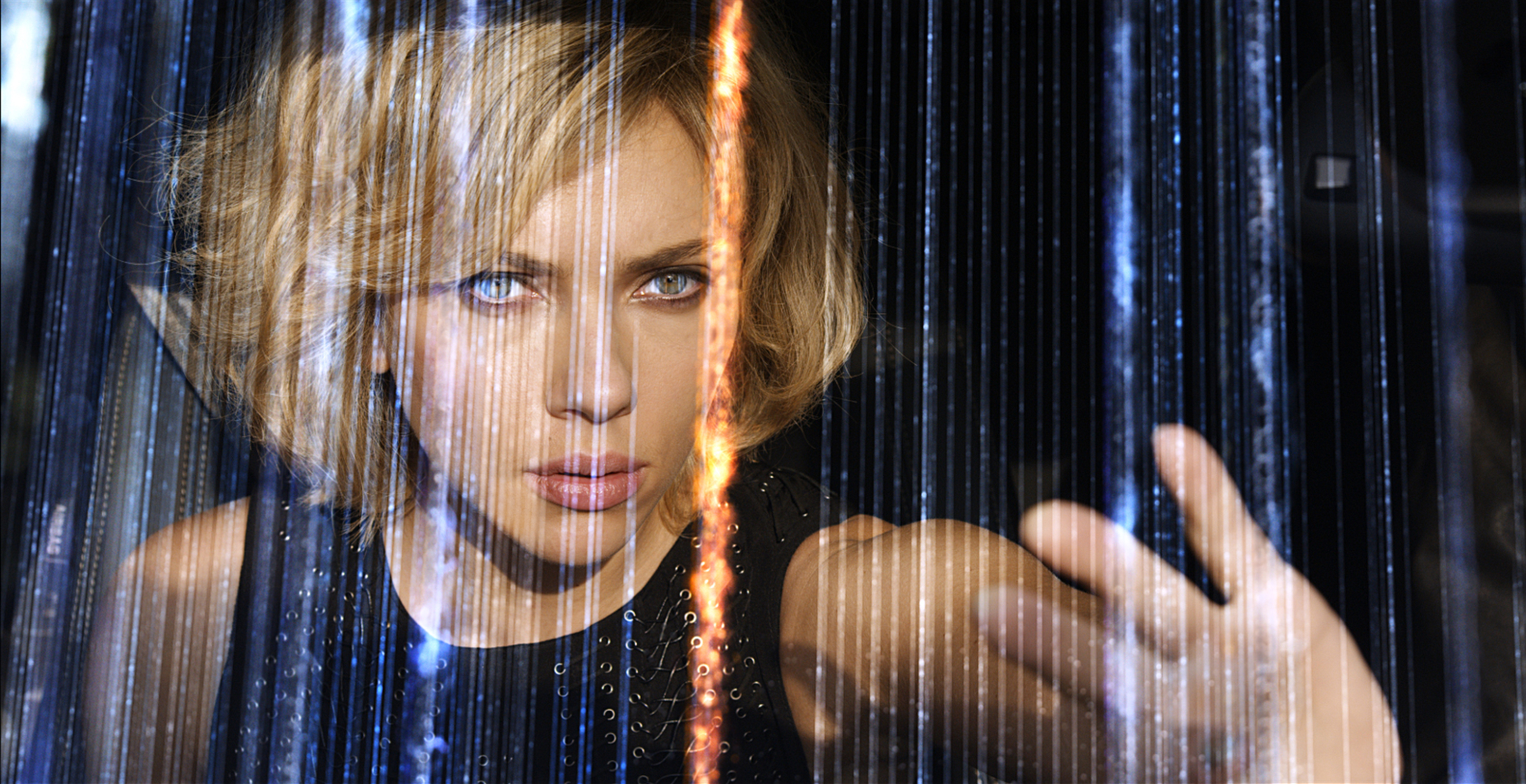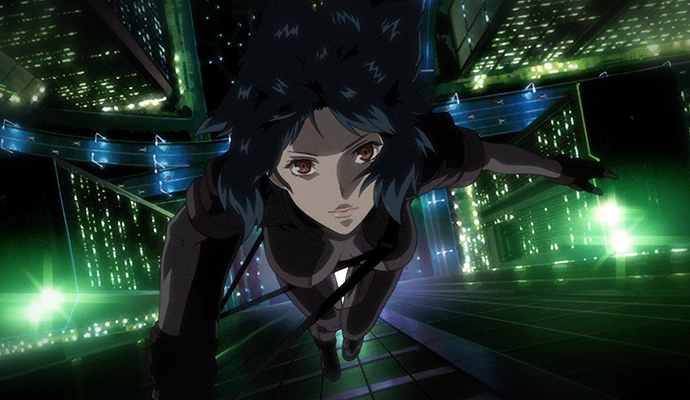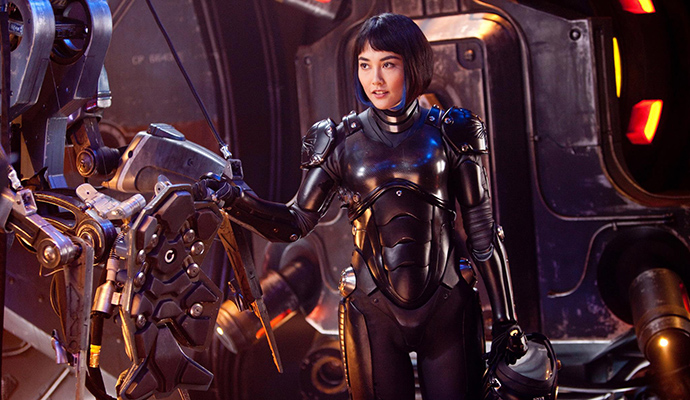Girls on Film: Why Scarlett Johansson — or any white actress — shouldn't star in Ghost in the Shell
Hollywood continues to whitewash its movies, with troubling implications both creatively and financially


A free daily email with the biggest news stories of the day – and the best features from TheWeek.com
You are now subscribed
Your newsletter sign-up was successful
Earlier this week, a long-rumored bit of casting became a reality: Scarlett Johansson, one of the most sought-after actresses in Hollywood, will star in a live-action film remake of the popular anime series Ghost in the Shell.
Ghost in the Shell focuses on a unit of the Japanese National Public Safety Commission that fights technological crime, and its squad leader, Major Motoko Kusanagi. A fierce cyborg, she is detached from the world, struggling with the line between her humanity and artificiality — whether she has a real human history, or just a mix of synthetic memories.
Kusanagi falls precisely into Scarlett Johansson's wheelhouse. Her resume is full of roles that tackle similar themes and issues, from Her's exploration of artificial intelligence and humanity, to Under the Skin's seduction, to the Avengers' Black Widow, who mixes power and technological savvy. In last year's hit Lucy, she even struggles with the balance between her humanity and the superhuman being she's becoming, after a scary hotel opening that recalls Ghost in the Shell's own introductory moments.
The Week
Escape your echo chamber. Get the facts behind the news, plus analysis from multiple perspectives.

Sign up for The Week's Free Newsletters
From our morning news briefing to a weekly Good News Newsletter, get the best of The Week delivered directly to your inbox.
From our morning news briefing to a weekly Good News Newsletter, get the best of The Week delivered directly to your inbox.
All of these qualities, along with her proven abilities as a box-office draw, might make Johansson seem like an ideal star for the Ghost in the Shell. There is, however, one big difference: Motoko Kusanagi is Japanese.
Some might split hairs and say Kusanagi might not be Japanese. She's a cyborg, and her physicality and storyline are often modified to fit the series' myriad adaptations — sometimes blue eyes, or violet eyes, or black hair, or purple hair. The series makes no specific reference to race. But even in the loosest of readings, she's a Japanese character with a Japanese name. Casting Johansson as Ghost in the Shell's lead is a missed opportunity to inject some of the diversity Hollywood needs.

Money is the usual defense for such whitewashing, as Ridley Scott recently exemplified in the thinly-veiled racism of his defense of Exodus, which used white Hollywood actors to tell a biblical story set in Egypt. "I can't mount a film of this budget, where I have to rely on tax rebates in Spain, and say that my lead actor is Mohammad so-and-so from such-and-such. I'm just not going to get it financed. So the question doesn't even come up," he defended. As David Dennis, Jr. wrote for Medium, Scott's statement ignored the hundreds of million made by diverse films like American Gangster, and the financial success of actors like Dwayne Johnson, who "could have been born and raised in ancient Egypt if ancient Egypt had a killer Crossfit gym."
To insist on a white actress for something like Ghost in the Shell isn't even the best business decision. It is no longer enough to simply cast white Americans in roles and hope for foreign box office success. Studios are increasingly looking to satisfy international marketplaces, and there's a good reason for it: As the BBC reports, China's movie market will eclipse the U.S.'s domestic market in just five years. Studios are increasingly embracing visceral stories to avoid dialogue barriers, and choosing actors that resonate with target markets internationally. In the case of Iron Man 3, China even screened a different cut of the film that included a subplot with Chinese characters.
A free daily email with the biggest news stories of the day – and the best features from TheWeek.com
Who else could star in Ghost in the Shell? The obvious alternative is the Oscar-nominated and highly-versatile Japanese actress Rinko Kikuchi; she co-starred in the $411 million-earning action epic Pacific Rim, and has had a similarly genre-jumping career. Other established actresses of Asian descent (though not Japanese) include Doona Bae, who jumped from popular foreign films like Sympathy for Mr. Vengeance and The Host to Cloud Atlas and Jupiter Ascending, while her Host co-star Ah-Sung Ko recently fought alongside an Avenger in Chris Evans' Snowpiercer. Chinese actress Ziyi Zhang has led many of the Chinese films that became popular in the U.S. (like Crouching Tiger, Hidden Dragon). The list gets even bigger when you look at actresses thriving stateside, like Maggie Q (Nikita, Live Free or Die Hard, Mission: Impossible 3), Ming-Na Wen (Agents of S.H.I.E.L.D.), Bingbing Fan (Iron Man 3, X-Men: Days of Future Past), and Bingbing Lee (Transformers: Age of Extinction, Resident Evil: Retribution).

Instead, Ghost in the Shell is just the latest manifestation of Hollywood's ongoing history of whitewashing. We often think the days of yellow face (The Good Earth, Breakfast at Tiffany's) and black face (Othello) are over, but the trend continues. Angelina Jolie darkened her skin to play Marianne Pearl in A Mighty Heart. Mena Suvari wore cornrows in 2007's Stuck, as if to nod to the real African-American woman her character was based on. Ben Affleck cast himself as Tony Mendez in Argo. Jim Sturgess starred in 21, the story of Asian MIT card counters.
If the indecency of these changes doesn't stop Hollywood, maybe they should consider the financial ramifications. Jake Gyllenhaal starred as the Prince of Persia, a U.S. flop that wouldn't have even made back half of its production budget if not for foreign audiences. Dragonball: Evolution cast the white Justin Chatwin as Asian protagonist Goku and made just $57 million. In the ill-fated Edge of Tomorrow, Tom Cruise played William Cage — a character named Keiji Kiriya in the manga All You Need is Kill, on which the film was based. Instead of the new franchises they were meant to spark, these films became one-off ventures that struggle to make their base production budget back — let alone recoup the costs for domestic and international marketing, distribution, and more.
Johansson is one of Hollywood's top actresses, and the $10 million she will make in the film shows DreamWorks' confidence in her. She is a star, but not a sure bet. Johansson has yet to prove herself as the lead of a big-budget project, in a landscape where even Tom Cruise’s involvement doesn't ensure box office success. (Lucy, her most successful film as an action lead, cost only $40 million — well below the typical blockbuster.) Though Johansson thrived as the Black Widow in four films, Marvel isn't comfortable giving the popular character its own feature. An unintentionally clear hierarchy has been set: Johansson is secondary to male superheroes, but preferable to (and worthy of a huge payday over) the many Asian actresses with similar blockbuster experience.
At the beginning of the animated film adaptation of Ghost in the Shell, a quote explains: "In the near future, corporate networks reach out to the stars. Electrons and light flow throughout the universe. The advance of computerization, however, has not yet wiped out nations and ethnic groups."
"Life perpetuates through diversity," the film swears — but Hollywood is still determined to deny Ghost in the Shell's identity. Once again, Hollywood embraces whitewashing even when it fails, and eradicates the few great, well-paying gigs made for a diverse talent pool that have already proven to be worthy stars.
Girls on Film is a weekly column focusing on women and cinema. It can be found at TheWeek.com every Friday morning. And be sure to follow the Girls on Film Twitter feed for additional femme-con.
Monika Bartyzel is a freelance writer and creator of Girls on Film, a weekly look at femme-centric film news and concerns, now appearing at TheWeek.com. Her work has been published on sites including The Atlantic, Movies.com, Moviefone, Collider, and the now-defunct Cinematical, where she was a lead writer and assignment editor.
-
 Political cartoons for February 16
Political cartoons for February 16Cartoons Monday’s political cartoons include President's Day, a valentine from the Epstein files, and more
-
 Regent Hong Kong: a tranquil haven with a prime waterfront spot
Regent Hong Kong: a tranquil haven with a prime waterfront spotThe Week Recommends The trendy hotel recently underwent an extensive two-year revamp
-
 The problem with diagnosing profound autism
The problem with diagnosing profound autismThe Explainer Experts are reconsidering the idea of autism as a spectrum, which could impact diagnoses and policy making for the condition
